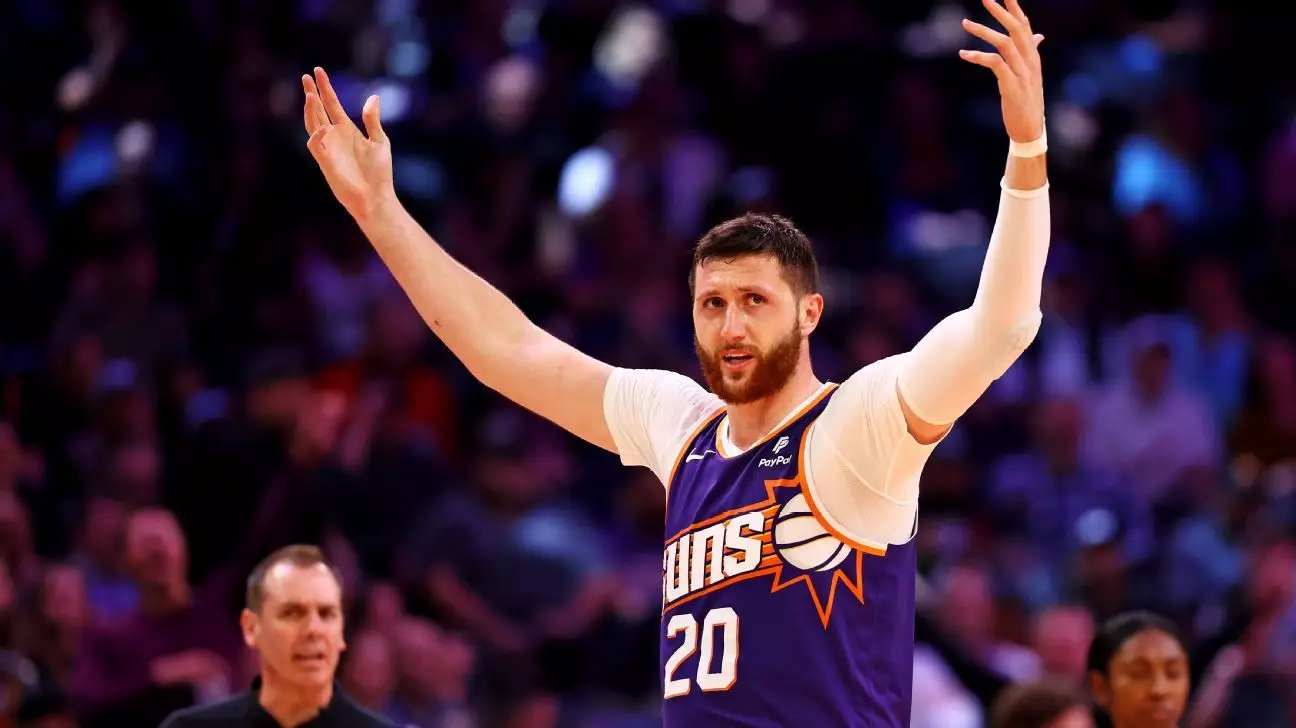In a surprising turn of events, Phoenix Suns center Jusuf Nurkic has openly expressed dissatisfaction with his standing on the team, particularly concerning his relationship with head coach Mike Budenholzer. The center made headlines when he admitted to not having spoken to Budenholzer for two months, even going as far as to claim that the two “don’t have a relationship.” This admission highlights a significant disconnect, not just between player and coach, but also within the larger dynamics of a professional basketball team.
Nurkic’s frustrations stem from his limited playing time and the unexpected nature of his relegation to the bench. Initially a starter, he began the season strongly but found himself sidelined and has now missed nine consecutive games. This situation raises questions not only about Nurkic’s role within the Suns but also about coaching strategies and the management of player relationships in high-stakes sports environments.
Before being benched, Nurkic started 23 games, averaging 8.6 points and 9.2 rebounds per game. His performance had been respectable, which makes Budenholzer’s decision to replace him with Mason Plumlee perplexing. Nurkic candidly reflected on the complexity of his situation, admitting it was hard to understand the reasoning behind his demotion. He has experienced being benched before, namely during his time with the Denver Nuggets when Nikola Jokic emerged as the starting center. The lack of communication from Budenholzer regarding his role only compounds Nurkic’s frustrations, especially given that he had not been informed about being benched for a significant game against the Atlanta Hawks.
The decision to pass over Nurkic has led to the Suns experimenting with different lineups, featuring not only Plumlee but also newly acquired Nick Richards and rookie Oso Ighodaro. Their recent performances have had an impact on the Suns’ success on the court, culminating in a satisfying victory against the Washington Wizards. However, the unceremonious sidelining of Nurkic raises broader questions about fairness and transparency within the team’s management strategies.
Despite the frustrations, Nurkic has displayed commendable professionalism in handling the situation. He emphasized the importance of remaining focused on his game and contributing positively to the team environment, indicating that chaos is not his style. “For me, just be a pro and do the best I can,” he stated, showcasing a commitment to his role both on and off the court. This mindset is crucial in a league where teams often have to make quick adjustments to lineups and strategies in pursuit of success.
Further illustrating his commitment, Nurkic expressed support for his teammates and acknowledged the coaching choices made by Budenholzer. He recognized the challenges that come with managing multiple players in similar positions. This spirit of cooperation and support, even when one is sidelined, can play a significant role in maintaining team morale in difficult circumstances.
As the trade deadline approaches, Nurkic remains optimistic about his position within the Suns. He stated his belief that he would still be with the team, adding, “One door closes, another will open eventually,” an outlook that reflects both resilience and a readiness to embrace change if needed. This attitude is pivotal in a league where player movements can be swift and unpredictable.
While Nurkic’s current predicament with the Suns appears uncertain, his experience, skills, and dedication are undeniable assets. He has previously enjoyed successful seasons, which could reignite under better circumstances or a different team strategy. As he continues to navigate his circumstances, fans and analysts alike will be watching closely, eagerly anticipating how this dynamic evolves. The journey of Jusuf Nurkic reminds us of the challenges athletes face and the enduring spirit they must harness to thrive, regardless of the hurdles encountered along the way.

Leave a Reply